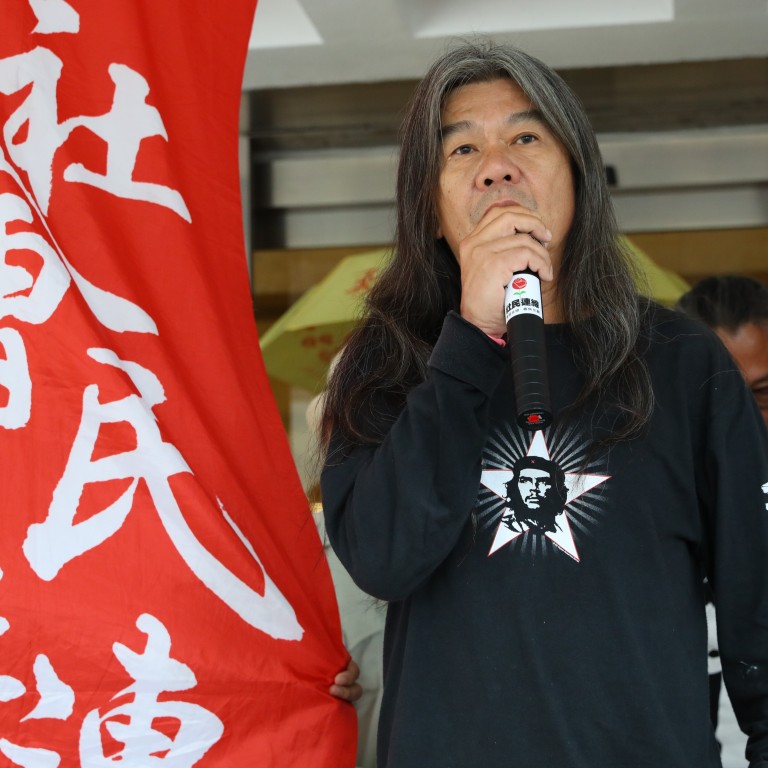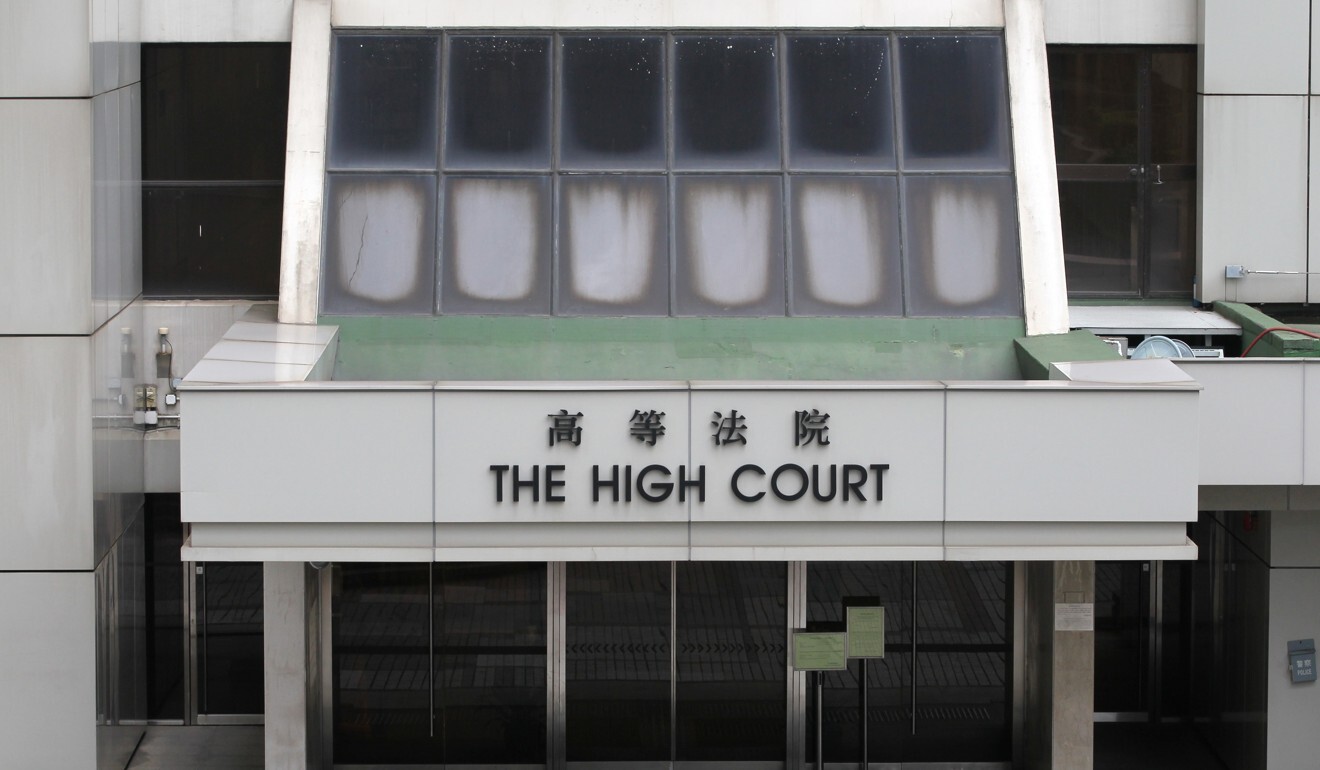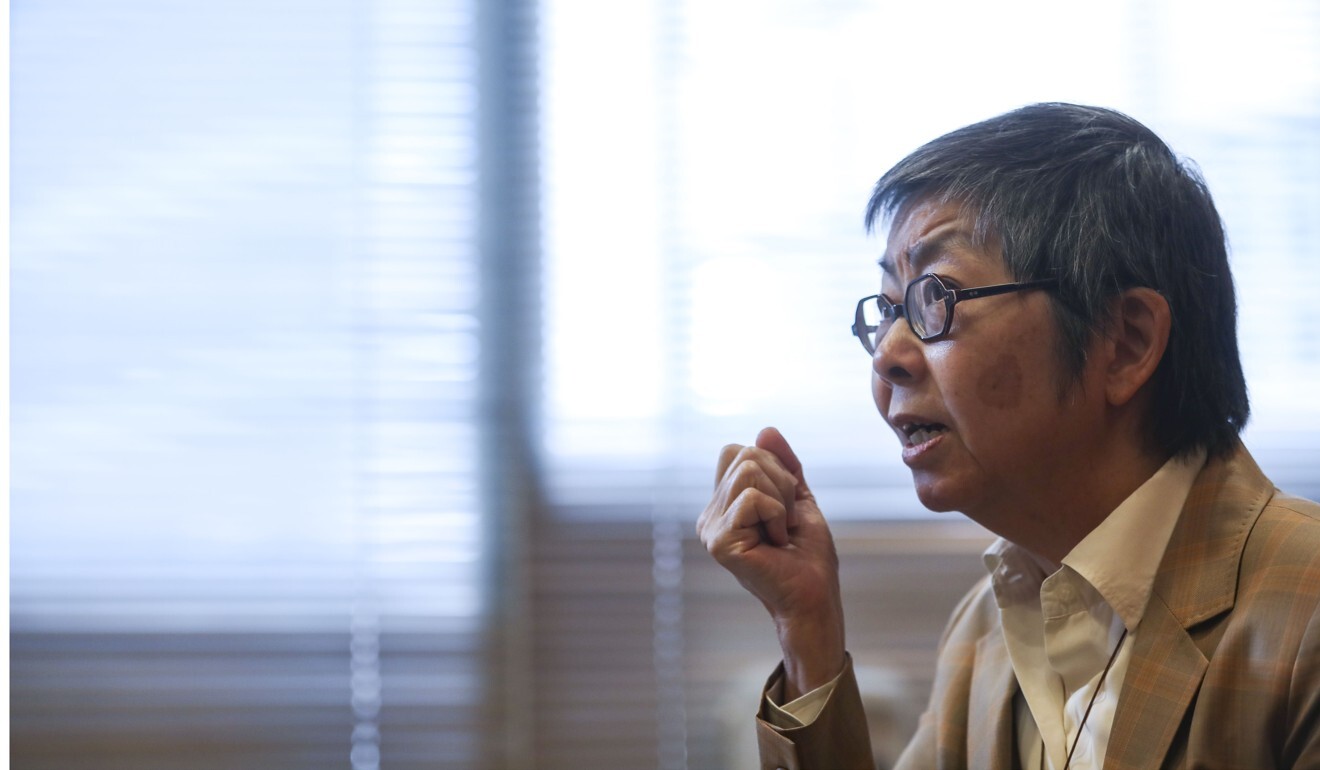
Appeal court tackles Legco immunity as Hong Kong prosecutors renew push to try ousted lawmaker for disturbance
- ‘Disorder in the house can be properly dealt with in the house’, defence counsel Margaret Ng says in arguing for absolute privilege
- Court’s decision will have major implications for other opposition lawmakers facing similar charges related to interrupting legislative meetings
Hong Kong’s top prosecutor on Tuesday told a court that lawmakers who interrupt Legislative Council meetings are not protected from criminal sanctions, as there are limits to the privilege and immunity enjoyed by members.
But counsel Margaret Ng Ngoi-yee, defending the former opposition lawmaker “Long Hair” Leung Kwok-hung, argued for absolute privilege, saying the courts should not interfere with Legco affairs. Leung’s contempt charges stem from a 2016 incident in which he snatched a document from a government official.
“Any disorder in the house can properly be dealt with in the house,” Ng told the Court of Appeal. “It does not stand in a vacuum. It stands within the house’s inherent jurisdiction to regulate its own members.”

The debate emerged during the Department of Justice’s appeal of a March 2018 West Kowloon Court ruling that lawmakers cannot be prosecuted for contempt under the Legislative Council (Powers and Privileges) Ordinance.
The case is believed to be the first time a Legco member has been prosecuted under the 1985 ordinance’s Section 17c, which directly penalises interruptions of Legco sittings.
The court’s decision could have far-reaching implications for the council, particularly for seven pan-democratic lawmakers, including Eddie Chu Hoi-dick, Lam Cheuk-ting and Kwok Ka-ki, charged under a separate section for interrupting a meeting on the now-withdrawn extradition bill on May 11 last year.
Leung, 64, has pleaded not guilty to allegations he created a disturbance during a Legco committee meeting on November 15, 2016, causing it to be interrupted or likely to be interrupted.
If [lawmaker privilege] was absolute, it would trump or override the privilege enjoyed by other members of Legco. Legco could not function
He is accused of approaching then-undersecretary for development Eric Ma Siu-cheung to borrow his folder, only to not return it when asked to do so by committee chairwoman Alice Mak Mei-kuen.
Whether he will be tried over the incident depends on the outcome of this debate.
Director of Public Prosecutions David Leung Cheuk-yin SC on Tuesday argued it was clear that lawmakers were not excluded from contempt charges because those provisions were necessary to give purpose to the ordinance.
The essence of Section 17, he argued, was “to provide a secure and dignified environment in the Legislative Council complex conducive to Legco carrying out its functions orderly and effectively”.
The prosecutor also argued there were limits to the privilege enjoyed by individual lawmakers.
“If it was absolute [privilege], it would trump or override the privilege enjoyed by other members of Legco,” he continued. “Legco could not function.”

He further observed that the ordinance stated lawmakers are immune only from legal proceedings brought against words they have spoken or written in reports. But he accepted that certain conduct was protected, as long as it did not amount to a disorder or disturbance likely to interrupt council proceedings.
The Chief Judge of the High Court, Mr Justice Jeremy Poon Shiu-chor, however, questioned if the prosecutor’s arguments were supported by previous rulings.
Ng, a former lawmaker, argued the ordinance provided members with absolute freedom of speech and debate that were inherently necessary for Legco to perform its functions without fear, saying there was “utterly no authority to support that a disturbance should be outside the scope of privilege”.
Lawmaker protected from prosecution in folder snatching case, court rules
She also maintained that Section 17 specifically deals with witnesses brought before Legco rather than lawmakers.
“If Legco were to enact something like Section 17c but specifically for a member, that would be unconstitutional,” Ng continued. “Because that would be inherently inconsistent with Legco being the master of its own house.”
Citing a Court of Final Appeal case, Ng said the top judges had explained the doctrine of separation of powers, which meant Legco has exclusive jurisdiction over its own affairs and courts would not interfere unless ordinary crimes – such as assault, theft or sexual offences – were committed.
“If an orderly debate is protected, then a disorderly debate is also protected, provided you don’t punch somebody – then that is assault,” she explained. “If my former colleagues were so misguided as to punch a speaker, then they can be sued.”
Poon, along with Court of Appeal vice-president Mr Justice Johnson Lam Man-hon and Mr Justice Derek Pang Wai-cheong, have reserved judgment.
Help us understand what you are interested in so that we can improve SCMP and provide a better experience for you. We would like to invite you to take this five-minute survey on how you engage with SCMP and the news.

